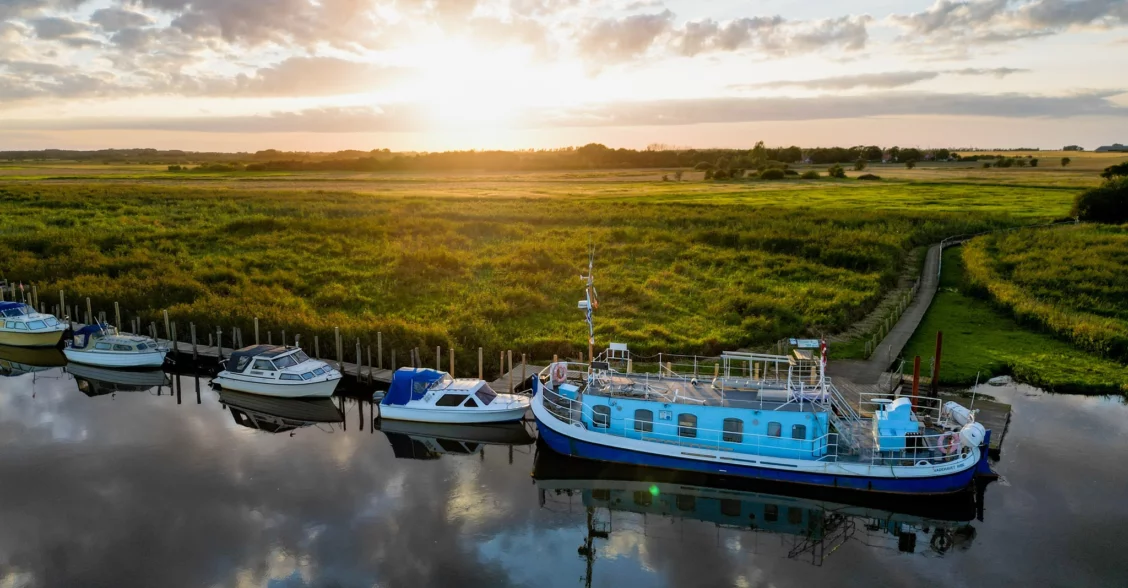The Wadden Sea National Park, which teaches both schoolchildren and university students on board Vadehavet, needs resources in order for the ship to keep sailing.
“Come on, Hjalte,” a child’s voice resonates. Hjalte is preoccupied with measuring the depth of the sea. He is on board Vadehavet (Danish for Wadden Sea), which belongs to the Wadden Sea National Park and is used as a dissemination platform and for research and teaching in the Wadden Sea area.
The past few years have seen increasing interest in using the ship to teach school children and university students, and on this particular day, Year 9C of Hjerting School are on board the ship to learn about the Wadden Sea, the national park and world heritage. Also on board the ship is a crew of volunteers and retired sailors.
Master Børge sailed the seas for 55 years – forty years as a captain, sailing around the world and visiting places as different as Greenland, Thailand and Namibia. Today, he is generously sharing his knowledge with Year 9C as a volunteer.
He keeps the ship stable so Hjalte’s measuring line stays vertical, and Hjalte shouts out to his classmates: “Two and a half metres deep!”
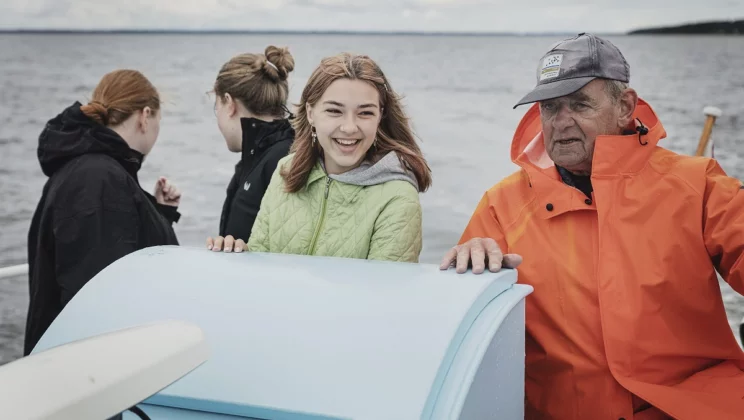
Master Børge sailed the seas for 55 years - today, he is generously sharing his knowledge as a volunteer at the ship 'Vadehavet'.
Interdisciplinary learning
The national park ship Vadehavet is designed to rest on the seabed, allowing preschoolers, school children and others to wade to the ship and learn more about the Wadden Sea. But today, the ship has put to sea to a depth of several metres, and Year 9C are being taught on board the ship.
The subject is ‘vessel-based teaching’, which is interdisciplinary science learning. This means that the teaching covers the subjects of physics, chemistry and biology, and the teachers hope that the students will apply their interdisciplinary learning in exam projects. The students collect water samples to determine oxygen levels, they measure the water depth, study microplastics under a microscope and much more.
Bodil Kristensen, a nature guide, gives an introduction while making use of galley walls and tables, which are covered with information about Wadden Sea nature and culture.
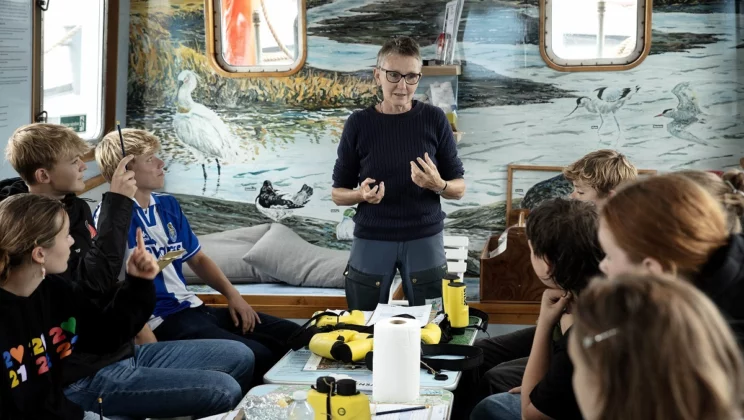
Nature guide Bodil Christensen gives an introduction while making use of galley walls and tables.
More hands needed
The group of volunteers numbers some twenty people – shipmasters, men and communicators – but sailing costs money and personnel is not always readily available.
“We’re therefore looking for companies that might be interested in working with us and in making shipmasters available who would like to share their time and expertise with local kids and young people. They might even instil in them an interest in sailing and sow the seeds that may make them employees in the future,” says Alette Houman Dyhrfjeld, Wadden Sea National Park volunteer coordinator and secretary.
Companies supporting the ship are free to use Vadehavet for senior schemes for mates, engineers and other staff with know-how of and an interest in navigation.
“The seamen’s jargon, the spirit of community, the smell of iron, the cries of seagulls and the sound of a diesel engine set the scene for social interaction that is further supported by elevenses and pastries on board the ship,” says Dyhrfjeld.
The volunteers also welcome students from the University of Copenhagen on board the ship. The students use the ship for trips around the Wadden Sea in connection with projects at the university’s field station on the peninsula of Skallingen, where they carry out scientific measurements and studies as part of their degree programme.
The ship takes school children or students from the University of Copenhagen on expeditions some twenty times a year – sometimes as far as to the Varde Stream.
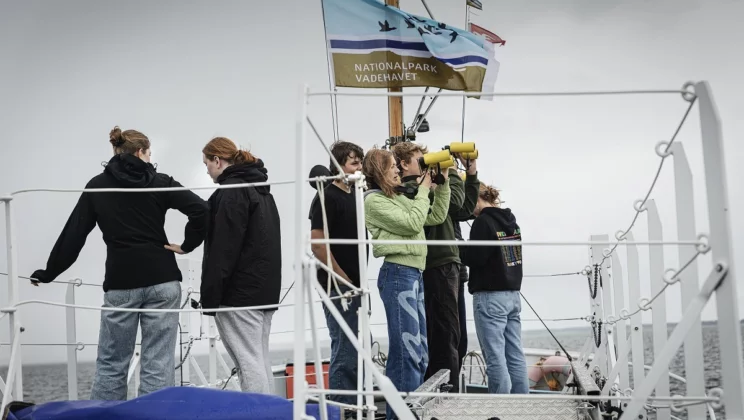
Wadden Sea National Park is looking for new collaborations and volunteers.
Vessel-based teaching works
On the deck of Vadehavet, Year 9C have moved on to measuring the oxygen level of the water. A reading of 2.0 indicates critical oxygen depletion, but the device shows 9.0, which is fairly good. Turbidity, measured by means of a Secchi disc on a line, is 2.5 metres.
On returning to school, the pupils will study water samples under the microscope, looking for plankton and microplastics.
Børge navigates Vadehavet with a smile on his face as the ship approaches the jetty at Hjerting Badehotel, a seaside hotel near Esbjerg.
“This is vessel-based teaching, and it works,” says Kristensen.
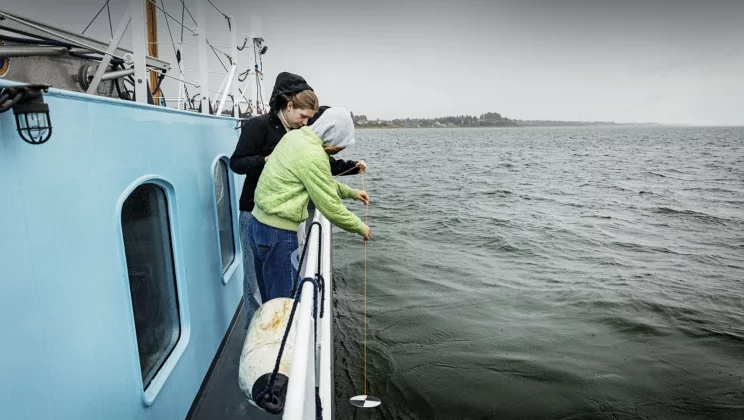
Hjalte is preoccupied with measuring the depth of the sea.
Go to overview
